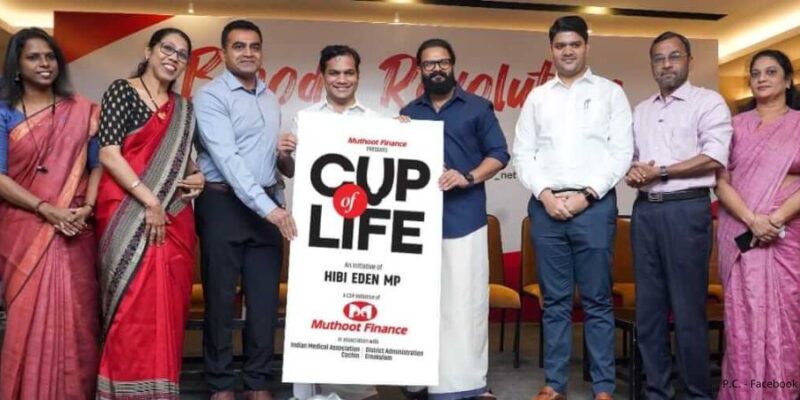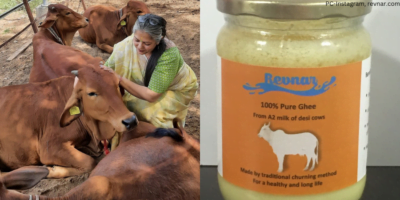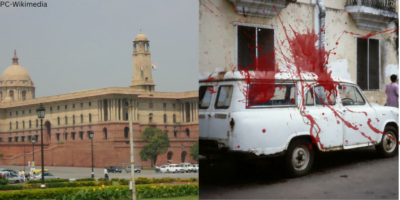Each girl on this planet is aware of the vicious way of menstruation – from cramps in the abdomen to blood stains, and mood swings, the menstrual week has it all.
But there is one major concern during the time of menstruation other than the natural causes – The pads. The rashes caused due to pads are an additional punishment. Regularly changing and discarding sanitary pads is inevitable.
There is not much that can be done to avoid the physical pain but we have a way out to avoid the pad issues – THE MENSTRUAL CUP!

Menstrual Cup v/s Sanitary Pads
Menstrual cups are tiny, flexible cups that are inserted into your vagina to trap and collect menstrual fluid. It has the shape of a funnel and is made of silicone or rubber. Many women use cups as an environmentally friendly substitute for tampons since they can store more blood than other techniques.
Menstrual cups offer some relief as they don’t cause rashes and there are no worries about changing them and disposing of them regularly. Menstrual cups are also environmentally friendly because carelessly disposed of sanitary napkins considerably increase the amount of harmful waste on Earth.
Wearing a menstrual cup Prakriti Varshney, a 26-year-old lady climbed Mount Ama Dablam (6,812 m) in Nepal. One can understand the level of comfort of a menstrual cup from Prakriti’s achievement.
Diapers and sanitary pads produce a lot of garbage. The main problem is that there is no mechanism in place to get rid of them. About 12 billion sanitary pads are discarded annually in India.

Menstrual waste that is not separated and is improperly disposed of also puts waste workers’ health at risk. But not much was being done to solve this problem, until now.
Kerala Introduced “The Cup Of Life”
The Kerala government is popular for its techniques of teaching, being the most educated state and now the government is moving to encourage menstruation hygiene.
Hibi Eden, an MP for Ernakulam, has started a campaign named “Cup of Life” to encourage the use of menstrual cups. It intends to provide free menstrual cups to more than one lakh individuals in its district within a 24-hour period.
On August 30, menstrual cups will be given through 100 facilities in the area in coordination with the district government.
Actor Jayasurya unveiled the “Cup of Life” logo at the Indian Medical Association (IMA) Cochin. This initiative is funded by Muthoot Finance, and in collaboration with IMA Cochin and the Ernakulam District Administration.

“We frequently read news reports about marine contamination and fish deaths caused by plastic garbage. Many sanitary napkins are discarded into the water. Menstrual cups are a product of the future.
Dr. Haneesh Meerasa, Vice President of IMA Cochin.
For most women, dealing with period cramps is unpleasant. While males are oblivious to the severity of the suffering, “Cup of Life” coordinators made them feel it. Yes, the campaign is just not to promote physical sanity during periods but to create awareness about the pain women feel during their periods.
Men were asked to dare up and take the challenge of feeling the pain’s intensity through an eclectic shock. Some even dared to accept the challenge and shared the experience to be very bizarre and painful.
“A lady must spend at least Rs. 60 to Rs. 80 each month on 10 pads or more. For the years she menstruates, the sum totals about Rs 34,000. A cup costs between Rs. 100 and Rs. 300, and it lasts for roughly seven to ten years.
“We want to revolutionise and make people talk openly about periods.”
Dr. Maria Varghese, President at IMA kochi
Making the switch to a menstrual cup from the regular plastic pads can make a girl set free from the tension of replacing pads because cups make it simpler to get through the day without searching for sanitary public toilets.
Additionally, it is wonderful to stop spending money each month on plastic items that are bad for the body, adds to waste, and can pollute when it is burned for disposal.
Women are reluctant to discuss their periods and the sanitary products that are available on the market. Women cannot be held solely responsible for this deplorable behaviour. The stigma associated with menstruation has been ingrained in us by society.
Every time a woman seeks to get sanitary napkins, the shopkeeper wraps the packet of the pad in many folds of brown paper & places it in a black plastic bag; as a result, pads are worthless even before being used.
Girls frequently lack access to education on menstruation and information about it. As a result, they are not very knowledgeable about the various menstrual flow management techniques.

Menstrual hygiene, methods of controlling blood flow, and menstrual hygiene, in general, are never discussed openly with girls. So it shouldn’t come as a surprise that even after being informed about menstrual cups or tampons, we still don’t know how to use them or what advantages they have.
According to Hibi Eden, the campaign intends to break down stigmas associated with menstruation and encourage women to practise good menstrual hygiene.
Before the campaign “cup of life”, in 2018 “ breaking barriers” project was also initiated by the Kerala government in which sanitary napkins were introduced in schools. The pads did, however, cause blocked toilets to be a problem.
Menstrual cups proved to be a viable substitute. Menstrual cups were supplied in17 wards prior to the “cup of life” campaign. 4,000 women in Kumbalangi benefited from the cups after the campaign had been running for two months.

The Kerala government is making a change for the betterment of its women and the environment. The program has received an “overwhelming response” from the people, and many colleges have signed up to participate in this campaign.
Women around the country are switching to menstrual cups but it’s not yet popular. Menstrual cups are less frequently used because of the societal notion of virginity. But the Kerala government has decided to become the mother who will hold your hand and teach you all the important aspects of menstruation.
Manuel emphasised the significance of accurate awareness. “One ought to weigh the possibilities and select the proper-sized cup. It can take more than two cycles, and one might not feel comfortable on the first try,”
The Kerala government is making a very bold move for the whole country. The government has decided to throw away the wrapping of menstrual taboos and is driven to create a safer, hygienic, and plastic-free life for the people of the state.
God’s own country is indeed blessed. With some of the finest leaders and change makers. Kerala is mad for education and we are Mad4India!!
If you liked this story, you can also check out – “Say No To Plastic Bags” – These Indian Startups Are Offering Great Alternatives For Single-Use Plastic Ban
We at Mad4India are looking for inspiring stories from the motherland that enlightens the world. If you have a story share us on Facebook or LinkedIn and Instagram



